5. Birds Without Names (Kazuya Shiraishi)
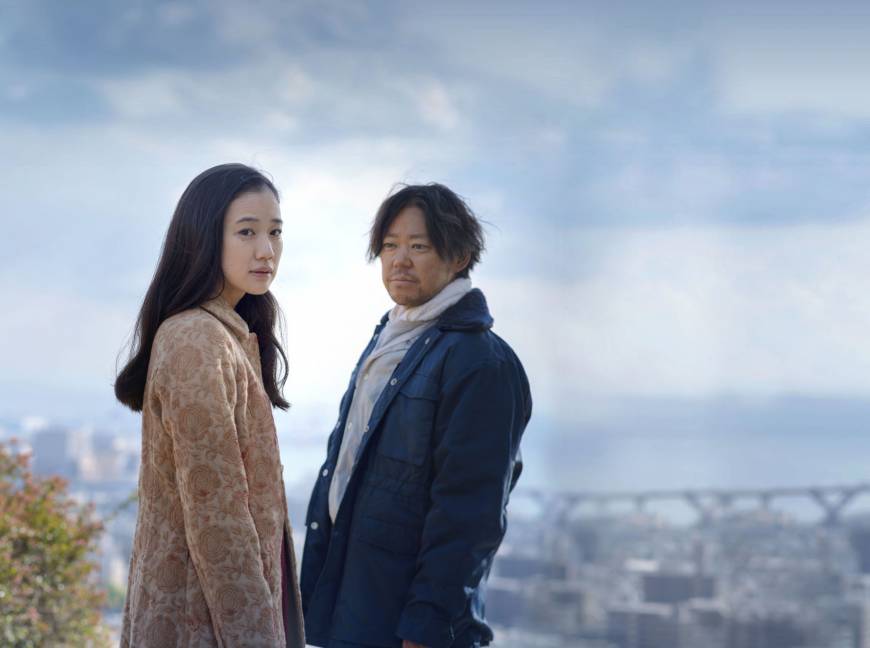
Iyamisu is a subgenre of mystery fiction, which deals with grisly episodes and the dark side of human nature. The subgenre has been quite popular recently in Japan, particularly through the works of Mahokaru Numata, Kanae Minato and Yukiko Mari. Inevitably, it also found its way into the cinematic world, with films such as Minato’s “Confessions” and Numata’s “Birds Without Names”.
Towako lives an aimless life. She is still stuck thinking about her ex-boyfriend, Kurosaki, even though they have broken up 8 years ago, and despite the awful things he did to her, including a severe beating upon their break up. She lives with a man named Jinji, a worker who is 15 years older than she is, and whom she actually despises, constantly putting him down and slamming him verbally for his “vulgar” ways.
The only reason she lives with him is that he is the only source of income in her life. Jinji, however, loves her passionately, and is willing to do anything for her, not bothering to ask the slightest thing in return. One day, Towako meets Mizushima, a watches salesman who reminds her of Kurosaki, and starts an affair with him, despite the fact that he has a wife and children. Soon after, a detective visits Towako and tells her Kurosaki is missing.
Kazuya Shiraishi directs a film where tension dominates the narrative. There is a tension in the way Towako interacts with the people around her, including various shop clerks, her constantly worrying sister, Jinji, and even when she is just by herself.
Quite early in the film, it becomes apparent that this tension derives from events that happened in the past, which the “couple” thoroughly avoids referring to, with the mystery of whose secret it is and what exactly is about, actually carrying the film until the plethora of revelations that come up in the last 45 minutes or so, after the family dinner scene, which I felt is the most tense in the movie. These events provide quite impactful plot twists, which give the film its crime/mystery nature.
This last aspect, however, is not the main one, as Shiraishi’s main focus lies with the abnormal (dysfunctional or even perverted if you prefer) love relationships of Towako. First, there is her past relationship with Kurosaki, a highly abusive one towards her, both mentally and physically, which she, however, cannot seem to get over from, to the point of a destructive obsession.
4. Bad Poetry Tokyo (Anshul Chauhan)
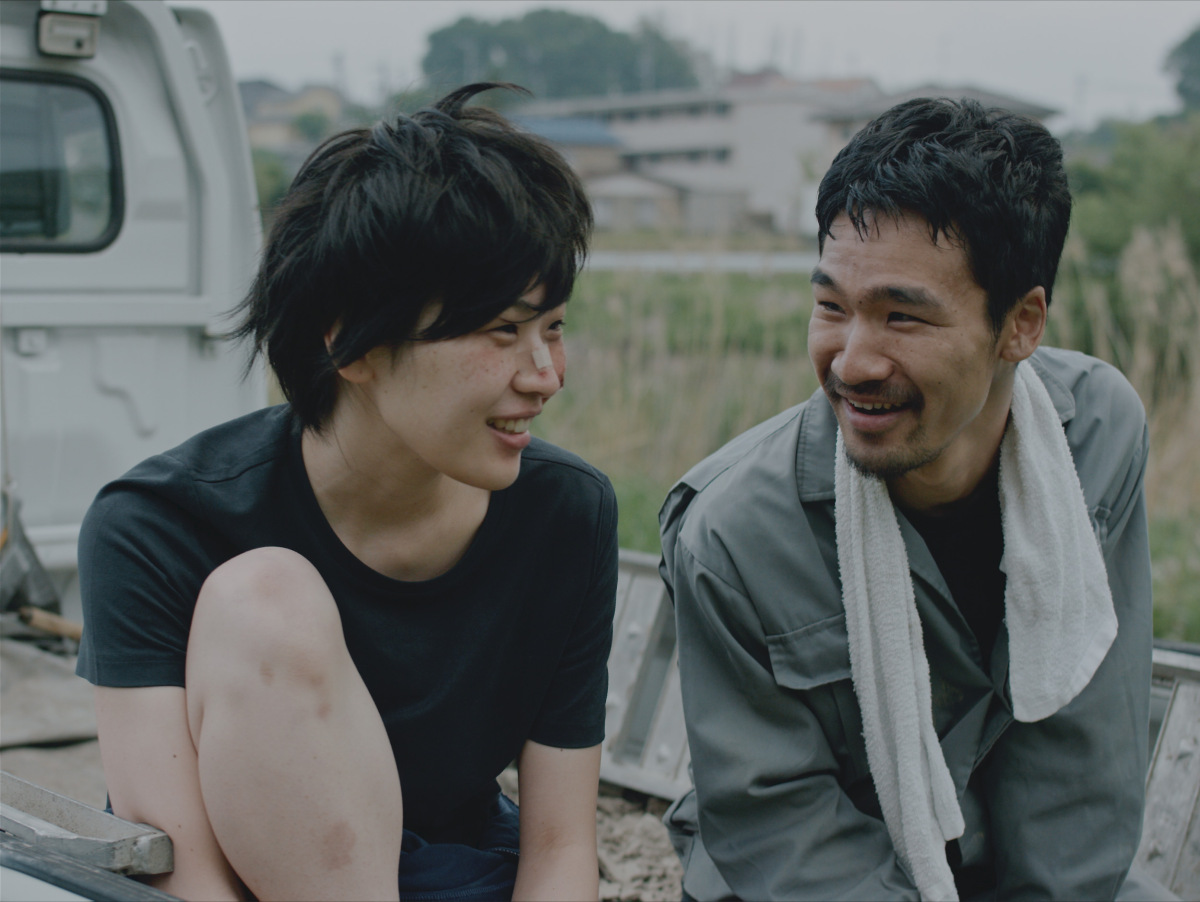
Who would of thought that a director born in India and finished schooling in military academy, would eventually become a director and shoot a Japanese indie film that seems to have captured the essence of the country’s cinema and its people in his feature debut? Unlikely as it may seem so, Anshul Chauhan seems to have accomplished just that.
The film starts with a rather intense intro before it calms down and introduces us to Jun Fujita, a 30-year-old woman who majored in English at Tokyo University and she is an aspiring actress. This however, is just the top of her life’s iceberg, since she actually works as a hostess in a shady club, a line of work that has her having sex with a number of clients. Her life is difficult, despite the presence of Taka, her boyfriend who also works in the club as bartender, but she remains optimistic, saves most of the money she is paid, and is really close on landing an acting part that will change her life.
Unfortunately, her boyfriend betrays her, the job in the club goes completely wrong, and a physically and emotionally traumatized Jun finds herself back in her village in Nagano, where she has left five years ago, not being able to withstand her family’s situation. Once again though, she has to face some terrible situations despite the fact that an old boyfriend, Yuki, is there to support her.
Anshul Chauhan directs and pens an intense film that highlights a number of topics with socking realism, stripped of any kind of beautification. The world of escorts is the first one, with the presentation being filled with violence, orders the defy even the natural needs of the women involved, and a hopelessness that eventually comes hitting at Jun’s door in the cruelest way. The second is abuse, and particularly towards women, with Jun being presented as a strong woman who finds herself powerless in the midst of the men around her, which include Taka, her boss in the hostess club, and her father.
This is actually the third topic, regarding the role of women in a world which is definitely dominated by men. In this setting, Jun finds herself stripped of any kind of dignity, hope, and eventually purpose, despite some very minor moments of peace and quiet. Eventually violence seems like the only “solution”, but again, Chauhan makes no effort to present it as something that brings salvation or catharsis, but simply as a last resort for a woman that the violence she has suffered cannot be contained anymore, and inevitably externalizes.
Chauhan makes a point of deconstructing his main character both psychologically and physically, with Jun appearing gorgeous, purposeful and keeping it quite well together in the beginning, only to have all the aforementioned aspects completely demoslished as the story progresses.
This concept is probably the most impressive in the film, with Shuna Iijima (an actress trained in London in various genres of theatre acting and performances) giving an outstanding performance as a woman who finds her situation becoming worse and worse despite all her efforts. This deconstruction benefits the most by her acting, with her anchoring the film in the most impressive way, in a rather dramatic fashion, stripped though, by almost any kind of hyperbole.
3. Blood of the Wolves (Kazuya Shiraishi)
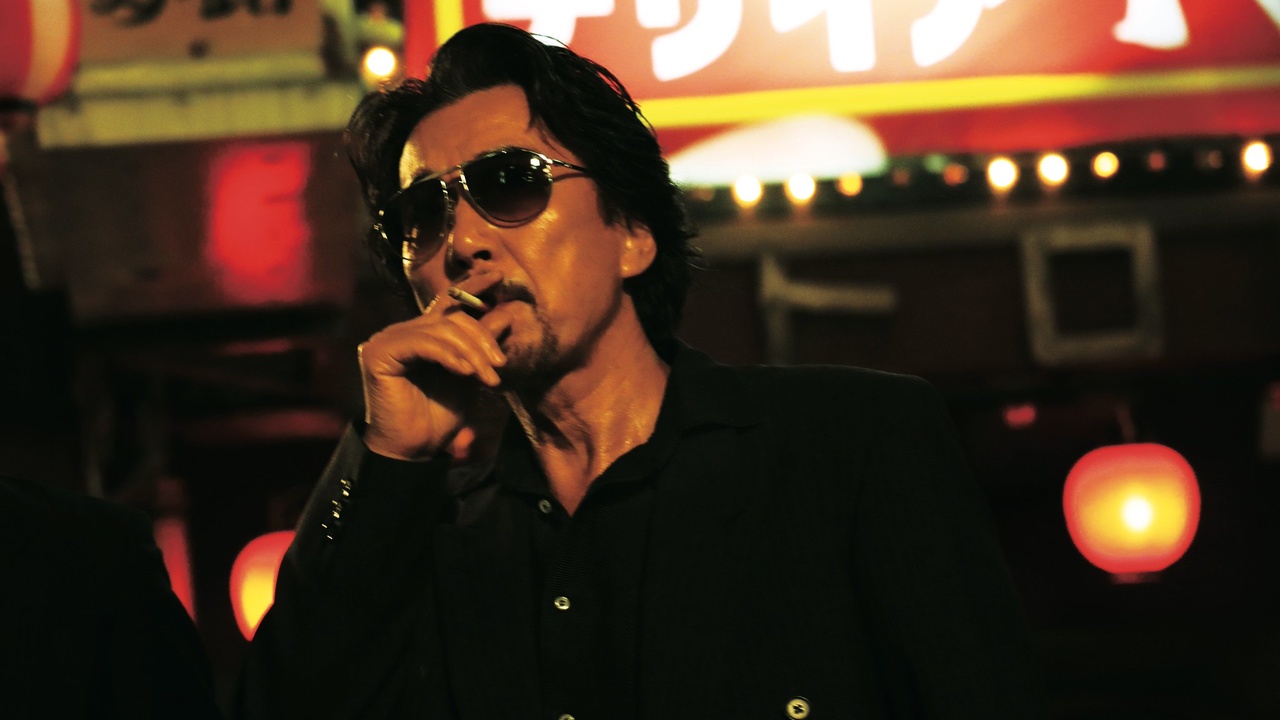
After dealing with the Roman Porno Reboot, doing the same with the Yakuza film was the reasonable path for Kazuya Shiraishi, whose approach toward the Yakuza film, with a combination of Kinji Fukasaku’s aesthetics as dictated in the “Yakuza Papers” and the style of “Training Day”, seems to be the way for the genre to go from now on. Let us take things from the beginning though.
The script is based on the novel “Korou no Chi” by Yuko Yuzuki and is set in 1988 in Hiroshima, prior to the enactment of the anti-organized crime law. Shuichi Hioka is the new guy in the East Kurehara precinct and is partnered up with Detective Shogo Ogami, whose ties with the local yakuza, and particularly the group Odani-gumi, are a known fact, even among his peers. Hioka, a university graduate on his road to the elite, is actually working for Internal Affairs, with his mission being to investigate Ogami.
In the beginning, and during an investigation about a missing accountant, Hioka is shocked and disgusted by the way Ogami bends the rules, to the point of acting like a criminal himself quite frequently, and wants to arrest him on the spot. Saga, his direct higher-up, however, insists on him finding a diary Ogami keeps before commencing on the arrest. As a turf war between the Irako-kai and Odani-gumi commences, the two policemen find themselves directly involved and Hioka finds the truth behind Ogami actions, which also involve a local bar hostess, Rikako, and experiences a rather radical change in himself.
Kazuya Shiraishi directs a very entertaining film, building on the two axes mentioned in the prologue. The “Yakuza Papers” one derives from the narration of the events that are not depicted on screen, as from a newspaper article, and the depiction of the Yakuza, with their constant thirst for violence, the extreme accents, and the games for power and domination between the various gangs.
The “Training Day” axis derives from the relationship of the veteran Ogami and the “rookie” Hioka, with the first taking the latter for a ride in the complex politics that shape the ties between crime and punishment, and the actual situation in the area. Shiraishi, though, takes this concept a step further, by eventually presenting a second layer in Ogami, which offers a plot twist that turns the film completely around, both regarding the veteran, and his relationship with the rookie.
2. Shoplifters (Hirokazu Koreeda)
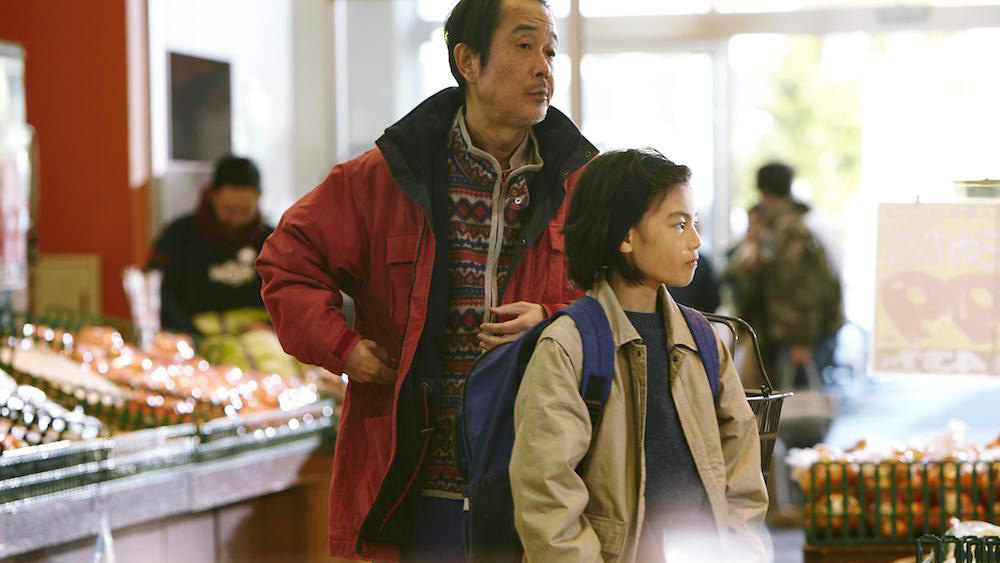
After a brief “stray” with “The Third Murder,” Hirokazu Koreeda returns to what he knows best, the family drama, with “Shoplifters,” one of his best works of the latest years, which netted him the Palme d’Or at the Cannes Film Festival. His brush with crime, though, seems to have affected him somewhat, as we are about to see.
Osamu Shibata and his wife Nobuyo leave in a rundown house with their son, Shota, his sister Aki and her grandmother, Hatsue. Osamu and Nobuyo have some low paying jobs, while Aki works as a sex worker in a peep show club. The money they receive, however, is not enough, and they rely much on Hatsue’s pension, and their constant shoplifting, into which Osamu has decided to train Shota. The two of them shoplift quite frequently, but during one of their “excursions”, they stumble upon Juri playing on a balcony alone in the cold.
Osamu feels that neglecting a child is a crime and decides to take the girl with him in their house, particularly when he realizes that she is also bruised and scarred. Juri ends up spending the night, and soon finds herself part of this rather unusual family, as all of its members seem to care about her. As time passes though, a number of secrets regarding the family members come to the fore, while reality eventually catches up with them all.
Similarly to “Like Father, like Son”, Koreeda explores the concept of family and what, actually, makes one. Again, he stresses the fact that blood relations are not as important as people usually consider, as much as the fact that love can come from any place. This opinion is highlighted throughout the film, but particularly in the heartbreaking finale, which establishes this viewpoint in the most shocking way.
Furthermore, Koreeda exemplifies the marginalized and the poor, highlighting the fact that they actually have to “indulge” in petty crime in order to survive, thus justifying their actions to a point, only to shutter this idea completely during the last part of the film. His general concept moves, once more, very near the borders of surrealism, but it is this particular ability of his, to portray extreme situations utterly realistically, that has brought him to the top of the genre (to say the least).
In that fashion, I think that it is a true accomplishment that he manages to portray one of the most heinous crimes (child abduction) as an action deriving from love and caring, and a number of (petty) criminals as loving, even dignified individuals.
1. Killing (Shinya Tsukamoto)
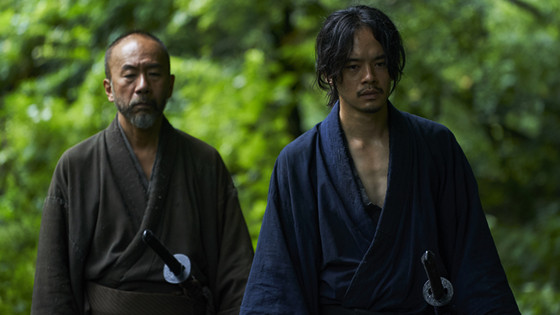
Can (intense) violence be used to communicate a message about antiviolence? If Shinya Tsukamoto begun giving a reply to this question with “Fires on the Plain”, this time, he gives a definite one, and in the most stunning matter.
After 250 years of peace, the idle samurais hear again the bells of war in the mid 19th century coming from Edo, as the “negotiations” with the Americans start taking place. Mokunoshin Tsuzuki is another masterless samurai, who earns his living by working in the rice paddies of an isolated farm, while honing his skills by sparring with the family’s son, Ichisuke, who dreams of becoming a samurai, despite the fact the he was born a peasant.
At the same time, the beginning of a subtle romance seems to take place between Tsuzuki and Yu, the family’s daughter despite the fact that the girl disapproves of her brother’s dealings with the samurai ways.
Nevertheless, the sudden appearance of Jirozaemon Sawamura, a veteran samurai who is in search for talented warriors that will fight for the shogun’s side, and of a band of ragtag ronins, changes the lives of all involved forever, as the cycle of violence opens.
This “opening” is where Tsukamoto’s main comments lie: Once violence ensues, no one remains unaffected, despite his degree of involvement, and the closing of the cycle is as difficult as its opening is easy. His approach towards the presentation of the aforementioned borders on the extreme, as he does not shy away from the violence even a bit, with the tendency finding its apogee in the scene in a small cave, which could be easily described as butchering.
The amount of violence in the film, however, does not hide his messages by any means, as his hatred for war and violence in general extends to the concept of revenge, human nature (in terms of how people cherish violence when they benefit from it), and the fact that samurai swordsmanship may look impressive and noble, but in reality, its only purpose is to kill.
Through this last concept, and particularly through Sawamura’s continuous will to follow its rules, Tsukamoto seems to highlight the futility of Bushido, in a fashion similar to the one presented in films such as “Harakiri” and “Samurai Rebellion”, where the “nobleness” of Bushido was completely deconstructed.
The beauty of the samurai ways and particularly of the swordsmanship is also highlighted through Tsukamoto’s and Satoshi Hayashi’s cinematography, with Tsuzuki functioning as the vessel for this tactic, but this lasts only briefly, as the reality deriving mostly from violence eventually takes over, again deconstructing anything about the concept that could be described as even remotely positive.
Special Mention: Melancholic (Seiji Tanaka)
The film could easily be among the ten best of the year, but since I managed to watch it very late, I just included it as a special mention
The story revolves around Kazuhiko, a graduate of the prestigious University of Tokyo, who lives a rather unfulfilled life in his parents’ house. His life, however, changes radically after he reacquaints with a former schoolmate, who eventually helps his get a job at a bathhouse, which functions, though, as a place for killing people for the Yakuza.
Tanaka combines a number of different genres, which stretch from yakuza action and crime thriller to social drama and romantic movie, in order to present a number of very interesting social and philosophical comments. This combination, along with the excellent acting, particularly from Yoji Minagawa, who gives a great performance as Kazuhiko.
“Melancholic” earned Seiji Tanaka the Japanese Cinema Splash Best Director Award from the Tokyo International Film Festival.